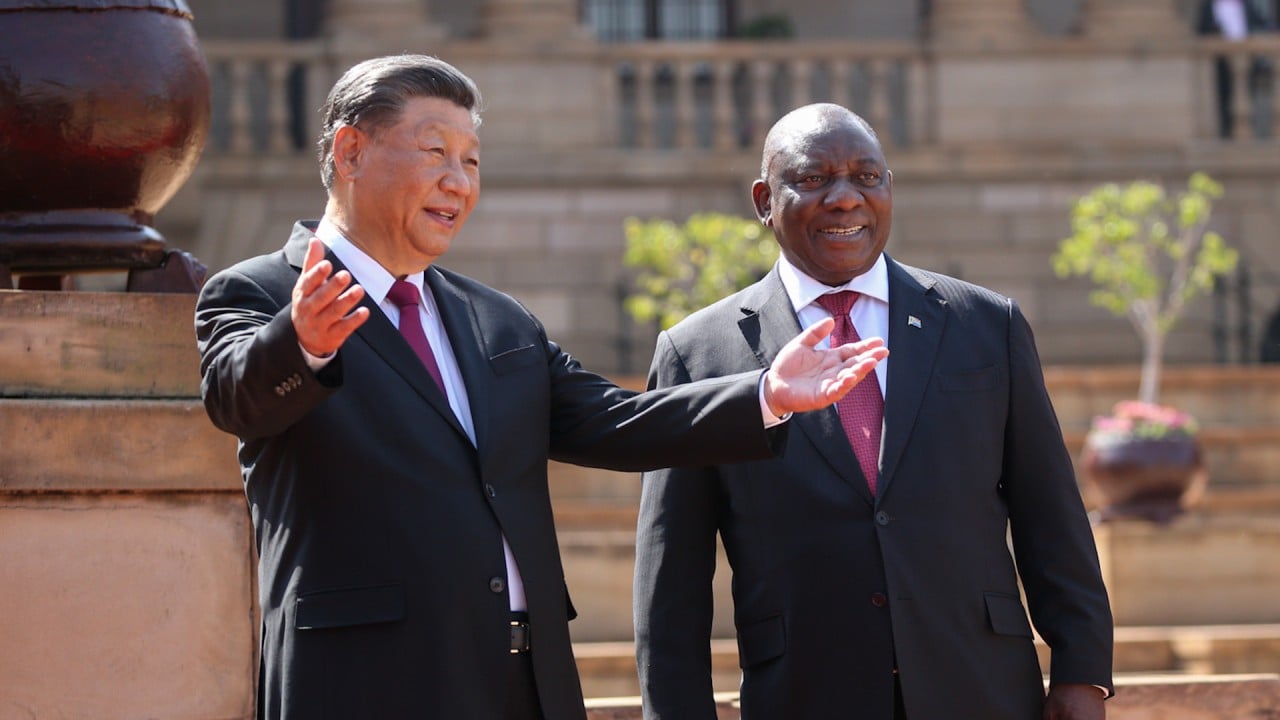Thailand’s bid to join Brics is a likely prelude to more American non-Nato allies embracing the China-backed group, echoing a worldwide trend to reduce dependence on the US dollar, according to Chinese experts.
Still, the 10-member bloc of major emerging economies has “a long way to go” before it achieves a greater role in global governance, as it remains “relatively marginal and fragile” despite being a new-style organisation, analysts said.
At a meeting on May 28, the Thai cabinet approved a government draft letter that indicated Bangkok’s intention to become a member of Brics, in another sign that the No 2 economy in Southeast Asia is moving ahead with a plan to apply for membership in the intergovernmental mechanism.
The next Brics summit to be held in Kazan, Russia in October will be an opportunity for Thailand to accelerate its accession, government spokesman Chai Wacharonke said on May 28.
“Thailand’s accession to Brics would benefit the country in several dimensions [for example] elevating the country’s role in the international arena, and increasing its opportunity to take part in international economic policymaking, and to create a new world order,” read a statement from the Thai government.
Bangkok’s move came after the grouping officially expanded beyond its core members of Brazil, Russia, India, China and South Africa earlier this year, adding five more countries – Iran, Egypt, Ethiopia, the United Arab Emirates and Saudi Arabia.
Argentinian President Javier Milei withdrew the country from its planned entry into Brics last year. Still, Russian Foreign Minister Sergey Lavrov said last month that more than 30 states had applied for various levels of affiliation with the group.
Thailand’s membership bid reflected “a phenomenon of relying on the United States for security and China for the economy”, according to Wang Yiwei, a professor of international relations at Renmin University in Beijing.
“American non-Nato allies joining Brics may become a trend in the future, not just isolated cases,” he said, adding that even Nato member countries such as Turkey had also shown interest in joining the bloc.
Turkish Foreign Minister Hakan Fidan reaffirmed Ankara’s desire to join Brics during his trip to China last week.
As Russia assumed the rotating chairmanship of Brics this year, Ankara’s bid to join the bloc was expected to be discussed.
Globalisation was now shifting towards a more “functional” direction, Wang said.
After Washington designated Thailand as a major non-Nato ally in 2003, Bangkok remains the only US treaty partner on the mainland of Southeast Asia.
Thailand’s bid for membership showed that the Brics expansion “is progressing steadily”, said Zhao Zhijiang, an analyst at the Beijing-headquartered multinational independent think tank Anbound.
“China-Thailand relations have always been close. Like Thailand’s announcement of permanent visa waivers for China in March, joining Brics is an important step in deepening the bilateral relationship,” he said.
China’s exports to Thailand grew 4.8 per cent in the first four months of 2024 in US dollar terms, compared to the same period last year, but imports from the country fell 10.7 per cent, according to Chinese customs data.
Zhao said he expected other members of the Association of Southeast Asian Nations (Asean) would follow Bangkok’s lead to try to join Brics.
Wang Qin, a professor at the Research School for Southeast Asian Studies at Xiamen University, agreed that Thailand could serve as a “model” and expressed hope that Indonesia, Asean’s largest economy, would join Brics.
In January, Jakarta said it was still weighing the benefits that the country would derive from a Brics membership.
Over the past 15 years, Brics has grown from an investment-related acronym to a political platform for intergovernmental cooperation with ambitions to give the Global South more influence in world affairs.
Its expansion has invited comparison to the US and the Group of Seven industrialised nations, but Brics leaders have said the bloc was not intended as a rival to the wealthy economies.
The grouping has also been increasingly viewed as a platform led by China, or by both Beijing and Moscow, to counter geopolitical pressure from Washington.
In a joint statement released after Chinese President Xi Jinping met his Russian counterpart Vladimir Putin in Beijing last month, both countries agreed to “facilitate the integration of new members into the existing Brics cooperation mechanism … enhance the influence of the Brics mechanism in international affairs and international agenda-setting”.
Still, Wang, from Renmin University, said that China and Russia could not dominate Brics, since the bloc was a new type of organisation in contrast with established institutions like the International Monetary Fund, where the US has veto power.
Zhao, from Anbound, said that Bangkok’s bid was primarily driven by its own economic and financial development considerations.
“[Thailand] might not reject the emergence of a new world order less dominated by the West and is willing to participate in building such an order, but it is not seeking to enhance a geopolitical competitiveness that carries a sense of confrontation,” he said.
In pursuing Brics membership, Bangkok is also seeking accession to the Organisation for Economic Cooperation and Development (OECD), another group of developed countries, and is expected to conclude negotiations for the Thai-European Free Trade Association (EFTA) within this year.
“That indicates that while strengthening cooperation with China, Thailand has not abandoned opportunities to enhance economic and trade relations with Western countries,” Zhao said.
“For Thailand, a country that practices multilateralism, I think it has equal appeal and hope for joining any international organisation,” he added.
“In the global political and economic landscape, the influence, representativeness and attractiveness of Brics remain relatively marginal. It is still a relatively fragile coalition of nations,” Zhao said.
Wang, from Xiamen University, said that the international economic order was in a turbulent phase and the existing global governance structures were struggling to function as effectively as before, noting that Brics, as a collection of emerging nations, could play “a certain role” in promoting reforms and adjustments to the rules.
“The Brics framework is still relatively immature,” he said, highlighting that member countries had diverse interests and different levels of development, political systems, ideologies and religions.
“It is quite complex, unlike the G7,” he added.
Meanwhile, Brics is still an aggregation without a secretariat.
Renmin University’s Wang said that Thailand’s Brics bid mirrored a widespread concern about the unreliability of the US and the US dollar, expecting the country to seek a “hedge” in Brics.
“The world has suffered from the dollar for a long time,” he said, adding that the Federal Reserve’s numerous interest rate hikes had led to significant capital outflows from emerging market countries.
On May 22, the Chinese and Thai central banks signed a memorandum of understanding to boost bilateral cooperation in local currency transactions.
“That does not mean Thailand seeks to completely abandon the dollar,” Zhao said.
He added that replacing the dollar would be a lengthy process but also said that “de-dollarisation” was accelerating due to increasing problems with the US currency.




